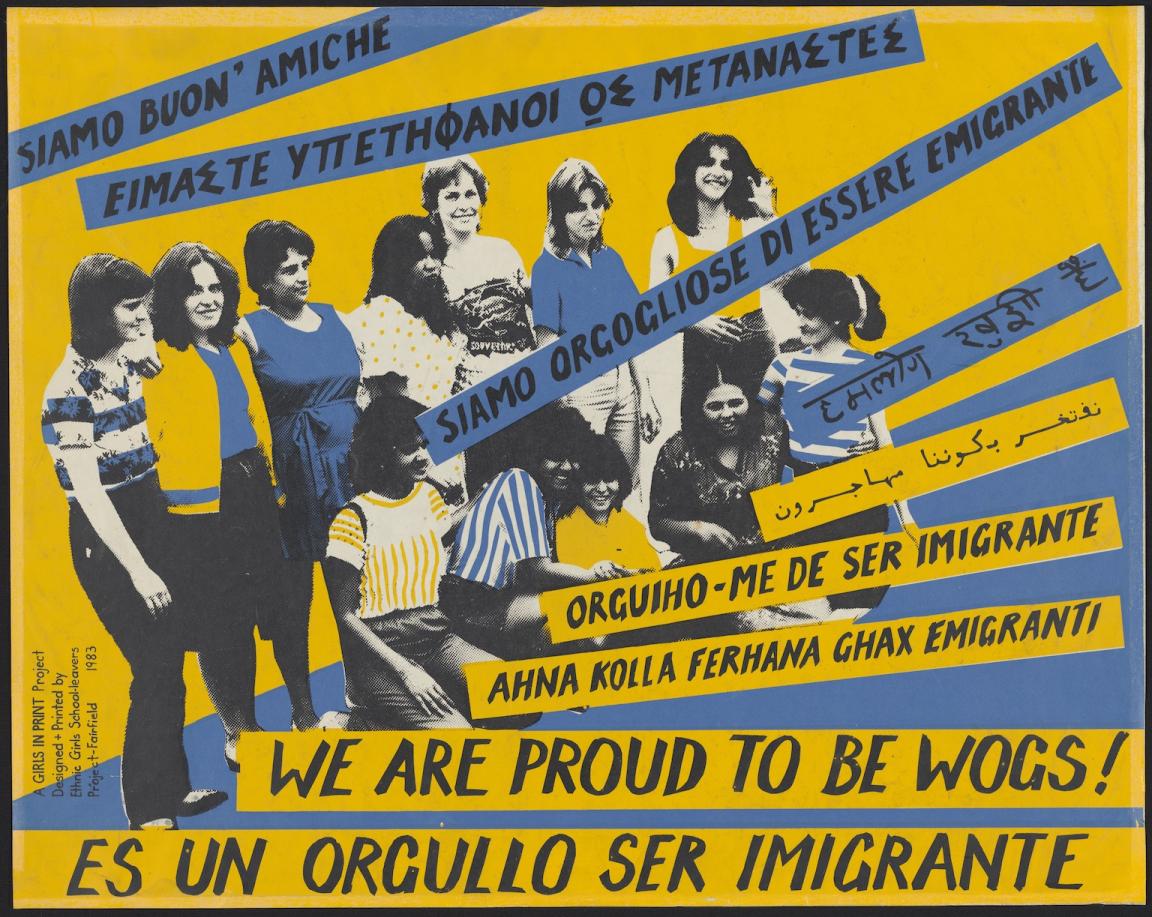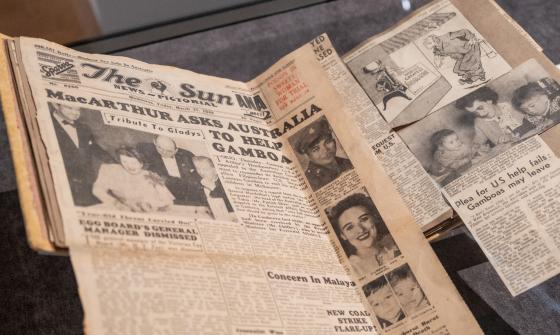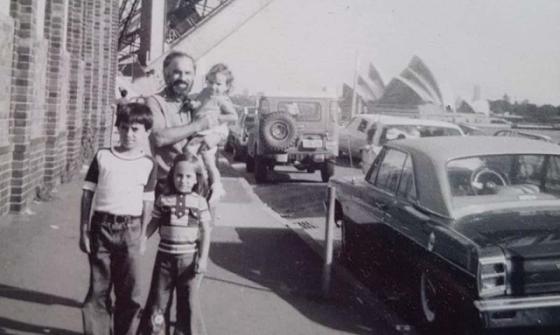Reclaiming a slur and celebrating culture
We asked ‘What do you do when you are called a wog?’ Quite a few of them said ‘I'm proud to be a wog, that's what I say to them’ and the poster followed from there.
In 1983, groups of young Sydney-based women produced a series of posters for the feminist poster collective Girls in Print Project. It was run by Amanda Holt and Liz Newell, who were interviewed about the project in the Autumn 1984 number 18 issue of Scarlet Women. The federal government provided Holt and Newell with $19,000 under Community Transition Education for the project, and $3,000 was added by the New South Wales Education Department women's unit. Posters were reproduced 200 times, and those made by high school students were distributed to at least 80 schools in NSW to be used as educational resources.
The Girls in Print Project is an example of a women's only art practice within the Australian poster collective movement that emerged in the late 1960s. The underlying purpose of poster collectives operating in this context was to give voice to a range of social and political concerns. Holt and Newell encouraged each group participating in the project to design a poster on an issue of relevance to them, in their own words, and using photographs of themselves. The Ethnic Girls School-leavers, pictured in this poster, created it to reclaim the derogatory word 'wog' and celebrate their heritage. The title is repeated in Italian, Greek, Hindi, Arabic, Maltese and Portuguese.

A Girls in Print Project designed & printed by Ethnic Girls School-leavers, We are proud to be Wogs!, 1983, nla.gov.au/nla.cat-vn5016725
A Girls in Print Project designed & printed by Ethnic Girls School-leavers, We are proud to be Wogs!, 1983, nla.gov.au/nla.cat-vn5016725
The word wog is most closely associated with the post-World War II period, which saw a rapid intake of Southern European migrants to support industrialisation and nation building. This wave of migration is characterised as a compromise of the White Australia Policy; they did not quite fit the category of ‘white’ and yet were considered ‘white enough'. Understandings of the term wog in Australia began to shift when the descendants of these postwar migrants started using humor to reclaim the word.
An example of this is the stage production 'Wogs out of Work', written by Nick Giannopoulos, Simon Palomares and Maria Portesi, which debuted in 1987. In her memoir All I Know, cast-member Mary Coustas described the show as “a mouthpiece for a generation of migrants and their children”. Informed by lived experience, it made audiences laugh while prompting them to think about ethnicity and identity in Australian society. A 'Wogs out of Work' theatre program and the Ethnic Girls School-leavers poster are displayed next to each other in the Hopes and Fears: Australian Migration Stories exhibition.
Despite this shift in thinking, the process of reclaiming a slur is ultimately complex. Its usage evokes debates around cultural license, regarding who has the right to call themselves, and others, a wog. As individual experiences with words like these differ, there are also varying levels of comfort with being referred to as a wog at all.
In the Greek-Australian community for example, of which I belong, some are proud to call themselves as a wog. Like the Ethnic Girls School-leavers, it becomes a way of re-fashioning their identity as members of a diaspora and cultivating a sense of belonging in Australia. Some also feel that using the word continues to perpetuate stereotypes about their community, rather than challenge them, and no longer has a place in contemporary Australian society.
Decades after this poster was created, conversations about culture, language and identity continue to expand and evolve.
See this poster, and more celebrations of culture, in the Hopes and Fears: Australian Migration Stories virtual tour.
Visit us
Find our opening times, get directions, join a tour, or dine and shop with us.



